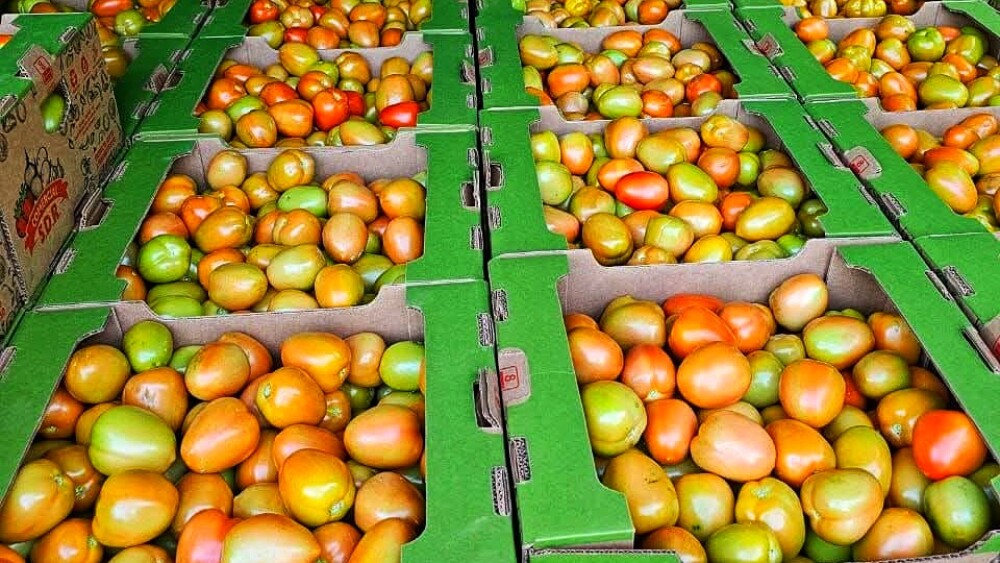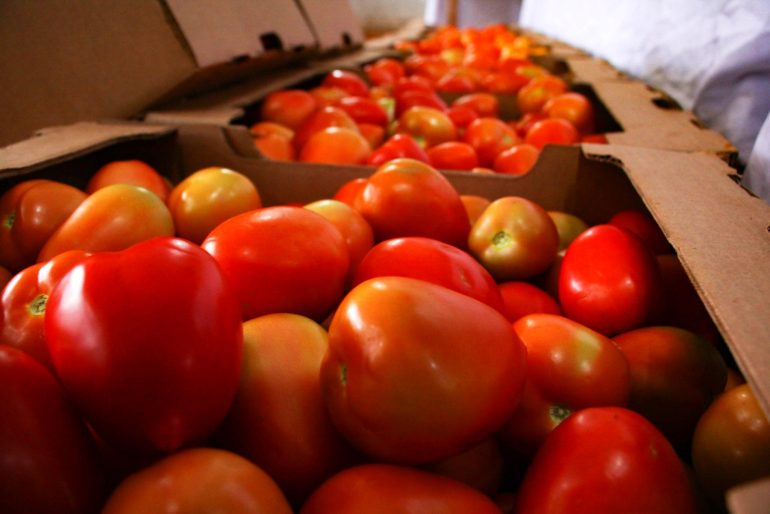On 11 November 2025, Paraguay’s first shipment of tomatoes in 2025 was dispatched: thirty tonnes from Caaguazú were sent to Mendoza, Argentina. More shipments are scheduled before the end of the year. Present at the departure were Minister of Agriculture and Livestock (MAG) Carlos Giménez. Also, the President of the National Service for Plant and Seed Quality and Health (SENAVE), Ramiro Samaniego.
Vice-President Pedro Alliana expressed his pride on his X social media. “Today we celebrate an achievement that fills us with pride: producers from Caaguazú have completed the export of 30,000 kilos of tomatoes to Mendoza, Argentina. This progress builds on last year’s historic milestone. When Paraguay resumed tomato exports after seventy years, proving that when we believe in our people, anything is possible.”
He also congratulated and praised the work of MAG and SENAVE for this achievement: “Thanks to the technical commitment of both institutions, this shipment opens new opportunities and markets for our farming families.”
Exports in 2024
Back in 2024, Paraguayan tomato exports to Argentina returned after seventy years of absence. The first shipment consisted of sixty tonnes of tomatoes, produced in the department of Caaguazú, one of the country’s leading agricultural regions. For the first time, local producers in the area experienced the process of exporting their own harvest.

Exporters shipped more than 1,571 tonnes of tomatoes in three separate stages. The first batch, amounting to 479 tonnes, went out in October 2024. In November, exports rose to 1,066 tonnes, and in December, a final shipment of 26 tonnes was completed. Also, during the same year, a total of 28,800 kilos of onions were exported to Argentina.
These milestones not only consolidate Paraguay as an emerging tomato exporter in the region but also open the door to new agricultural markets. The achievement diversifies the economy and increases income for producers, transporters, and rural communities.
Tomato exports generated nearly five billion Gs. for Paraguay. By the end of 2024, tomato production had expanded significantly, setting the stage for even higher export volumes in 2025.
Seventy years of absence
Since 2024, MAG has worked to increase tomato production nationwide. These efforts not only stabilised local prices but also made Paraguayan tomatoes more competitive across the region. The result is a symbolic reversal of roles: Argentina, once the main exporter of tomatoes to Paraguay, now imports them. This historic milestone ends seven decades of absence of Paraguayan tomatoes in the Argentine market.
After the Second World War, Argentina strengthened its domestic vegetable production. Also, imposed stricter phytosanitary and tariff barriers, particularly on perishable imports such as tomatoes. During the 1980s and 1990s, these regulations became even tighter, effectively restricting Paraguay’s ability to access formal and informal markets.
In recent years, SENAVE and MAG have collaborated to modernise production chains through cold storage systems, certified packaging, and traceability procedures that meet Argentine import standards. Producer associations and trading cooperatives also supported the certification and commercialisation process. Meanwhile, Paraguay’s border authorities continue to combat tomato smuggling to protect the formal market and ensure fair returns for local farmers.
Tomatoes to Argentina: A milestone for national agriculture
The resumption of tomato exports symbolises much more than a commercial success. The export reflects years of institutional cooperation, technological improvement, and renewed confidence in the Paraguayan countryside. By regaining a place in regional markets, Paraguay demonstrates that with persistence, transparency, and strategic support, national agriculture can compete on equal terms.
Ultimately, this historic achievement reflects a country that transformed seventy years of dependency into a new era. One of opportunity and growth, demonstrating the strength of national production and the vision of its agricultural sector.


